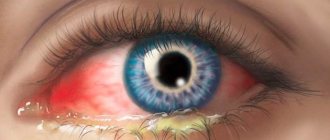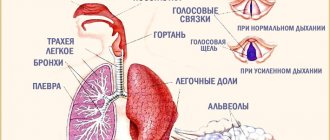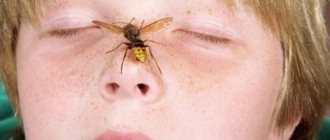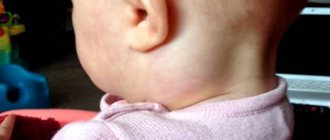In Russia, pneumonia is diagnosed in 10 young children out of 1000. Signs of pneumonia in a child depend on the age and type of the disease. Infants and children under 4 years of age are most susceptible to this pathology. Pneumonia in young children can be diagnosed using fluoroscopy. After confirming the medical report, the doctor decides to hospitalize the patient and selects antibacterial therapy. The disease lasts on average 7-10 days.
Why does a child constantly sniffle, but there is no snot?
The reasons for this unpleasant phenomenon can be divided into two broad categories:
- Physiological disorders.
- Pathological conditions.
Physiological reasons
A child who has just been born still has many organs and systems that are unformed and unadapted to the surrounding life. The microclimate of the room where he sleeps may not suit him. The constant horizontal position of the body prevents you from breathing correctly. Very often, this is the reason why the baby makes unpleasant sniffling sounds with his nose. The physiological reasons for this phenomenon are inherent in very young children.
The most common types are:
| Anatomical structure | A child who has just been born does not yet have a fully formed nasal cavity . The mucous membrane cannot adequately respond to external irritants: viruses, bacteria, dust. Therefore, an excess amount of secretory fluid is produced, and the child makes sniffling sounds. |
| Horizontal position of the child | All small children spend most of the day (up to 20-22 hours a day) in a horizontal position. Mucus - accumulates in the nasopharynx . The result is squelching and grunting sounds in the absence of a runny nose. |
| Room microclimate | Very often, fearing that their child will catch a cold, parents in the room where the child is located unknowingly create an unfavorable microclimate : increased room temperature, dry, dry air. The mucous membrane of the baby's nose dries out or crusts form, and as a result - the same grunting sound. |
Pathological causes
As the child grows up, physiological causes are joined by pathological ones, which can also cause unpleasant sniffling in the absence of a runny nose.
The most common types include the following:
| Colds | The initial stages of all viral and bacterial diseases can be asymptomatic. Minor discharge usually flows down the back wall of the nasopharynx. Trying to get rid of them, the child makes grunting sounds with his nose . This phenomenon may be accompanied by a cough that occurs immediately after waking up (the child unknowingly swallows mucus). |
| When inflamed, the nasopharyngeal tonsils increase in size and thereby complicate normal nasal breathing . There are no external manifestations of inflammation, but a combination of symptoms such as: sniffing in the absence of snot, frequent breathing through the mouth, hearing loss, often waking up at night due to lack of air - indicates inflammation of the adenoids. | |
| Allergy | If your baby makes unpleasant sounds through his nose only at certain times of the year or in certain situations or rooms , you should think about an allergic reaction to flowers, animal hair, dust, or an excess of sweets. |
| If suddenly started grunting and sniffling, you should definitely check the nasal passages for the presence of foreign objects . | |
| Congenital or acquired as a result of trauma, anomalies of the nasal septum | There is a disturbance in the exchange of air in the nasal passages - and, as a result, unpleasant intrusive sounds. |
| Formation of polyps and cysts | You should pay attention to a combination of symptoms : sniffing, nasal sound, difficulty breathing, decreased sense of smell, headaches. |
| Caries of the sixth and seventh pairs of upper teeth | The roots of these teeth are located in the maxillary sinuses. The presence of an inflammatory process in them can lead to nasal congestion . And, as a result, grunting and sniffling. |
| Various types of neuroses | In the absence of somatic diseases, nose sniffing can be attributed to nervous tics , which indicates psychological and neurological disorders of the child. |
How to treat a child if he constantly sniffles without snot?
Microclimate
Eliminating external causes that influence an unpleasant symptom is much easier than dealing with a pathological condition.
The most important rule is to maintain an optimal microclimate in the room where the child is:
- Air humidity should be between 50-70%.
- Air temperature: 18-22˚С.
- Daily wet cleaning.
- Ventilate the room several times a day.
Moisturizing the mucous membrane
If the nasal mucosa dries out, you can use the following medications:
- Aqualor.
- Aquamaris.
- Humer.
- No-Sol.
Vasoconstrictor nasal drops can dry out the mucous membrane of the nasal cavity when used for a long time (Nazivin, Naphthyzin). To avoid this side effect, it is recommended not to use these drops for longer than 5 days. Together with them, you need to use drops that contain oils, and rinse your nose with sea water.
Changing body position
To prevent mucus from the nasal cavity from flowing down the back wall during sleep, it is necessary to change the horizontal position of the child’s body during sleep. To do this, raise the head of the bed in which the baby is located.
In order to avoid drying out the mucous membrane while the child is awake, it is recommended to use the following medications:
- Aquamaris.
- Aqualor baby.
- Salin.
- Dolphin.
If you suspect this diagnosis, the child must be seen by an ENT doctor.
. He will prescribe treatment to relieve the inflammatory process. In more advanced cases and/or relapses, surgical intervention is indicated.
Allergic reaction
Typically, eliminating the allergen leads to a significant improvement in general condition. The child stops sniffing even without medication. In more severe cases, your doctor may prescribe antihistamines.
Changing the nasal septum
This pathology requires additional examination methods.
These include:
- Rhinoscopy.
- Diagnostic endoscopy.
- Computed tomography.
Based on the results of the examination, treatment is prescribed, usually surgery.
Types of childhood pneumonia
Depending on the location of the inflammation, pneumonia can be:
- share;
- segmental;
- right-sided;
- left-handed;
- bilateral.
Based on their form, they distinguish between community-acquired (home-acquired), hospital-acquired and congenital pneumonia. The least common is atypical childhood pneumonia caused by mycoplasma. Pneumonia, characteristic of patients with immunodeficiency conditions, is classified separately.
The most common types of pneumonia are:
- focal bronchopneumonia;
- lobar pneumonia (pneumococcal);
- segmental (polysegmental) bronchopneumonia;
- interstitial acute.
Moreover, each type of pneumonia can be divided into uncomplicated and complicated. This form sometimes entails more serious diseases, such as effusion pleurisy, lung destruction, etc.
Depending on the duration of the disease, pneumonia can be:
- acute current (lasting up to 4 weeks);
- protracted (stated when the inflammatory process in the lungs continues for more than 4 weeks).
Any untreated pneumonia, especially in children under 3 years of age, becomes chronic. This form is characterized by irreversible changes in the bronchial tree and constant relapses.
Types of childhood pneumonia
How to stop a child from sniffing often?
Parents often ask the question: “Is it possible to stop a child from sniffing?” There is no clear answer to this question.
Very important
Watch your baby carefully. Determine in what situations or at what time of day he begins to sniff or grunt more.
If this is associated with somatic diseases, then by curing them, you will get rid of this problem. If the cause is neurological or psychological, medication alone will not do the trick. After all, the causes of nervous tics can be stressful situations, a negative atmosphere in the family, a sudden change in environment or place of residence.
Quite often, children in the first months of life snore loudly and heavily while sleeping. Most often, a child's noisy breathing is caused by excessive dryness of the nasal mucosa, which occurs due to a decrease in air humidity. In addition, constant inhalation of dry air contributes to the appearance of dry crusts in the nasal cavity, which makes breathing difficult.
Also, snoring may be associated with anatomical and physiological features of the structure of the nasopharynx, characteristic of infants. The nasal passages in infants are significantly narrow, which contributes to the appearance of noise when inhaled air passes through the nose. As the baby develops, the nasal passages enlarge, and closer to the age of one year, breathing becomes quieter. Only an otolaryngologist, whom you should definitely visit, can determine the true reason why a child sniffles during sleep.
Causes
As a rule, the causes of noisy breathing in a child at night are various anatomical changes in the nasopharynx, which provoke a narrowing of the nasal passages.
These include:
- adenoid growths;
- acute or chronic form of runny nose;
- deformation of the nasal septum;
- nasal polyps;
- swelling of the mucous membrane of inflammatory origin;
- anatomical abnormalities of the nasal cavity;
- malformations of the hard and soft palate.
Also read:
A child may also wheeze heavily during sleep if they regurgitate excessively after feeding. When the baby is in a lying position, the gastric contents enter the posterior part of the nasal cavity. In this case, the inhaled air passes through the nasopharynx, accompanied by wheezing sounds. To prevent such phenomena, you should keep the baby in an upright position for 10 minutes after each meal.
If a child sniffles loudly through his nose in his sleep, but there is no disturbance in appetite, general malaise, or sleep disturbance, he is active and does not experience any discomfort, then there is no reason to worry. It is only necessary to ensure optimal temperature and humidity conditions in the room and proper hygienic care.
If there is a lack of air during feeding, breast refusal, or increased irritability of the baby, you should definitely seek medical help.
Cause of impaired breathing
Noisy and heavy breaths in infants under two years of age may be due to the physiological characteristics of their body. The main reason for this disorder is the increased elasticity of the respiratory tract tissues themselves. If the child eats well, sleeps soundly at night and does not lag behind in growth, then parents should not worry. When the child reaches one and a half years old, the cartilage tissue of the larynx will begin to thicken and the problem will go away on its own. If a baby breathes loudly during sleep, this may be associated with certain diseases and pathologies. This:
- acute laryngitis;
- false croup;
- pneumonia.
The most common reason that children experience problems with the respiratory system is acute laryngitis. This disease is considered dangerous, but it is well treated. It develops after a cold that has not been completely cured. Other symptoms of this disease include a dry, irritating cough that eventually becomes hacking and hoarse. The voice may disappear, the baby may lose appetite, and experience pain when swallowing.
In order to alleviate the condition of a baby with this disease, you need to leave the child in the bathroom, which is filled with hot vapors, before going to bed. The baby should breathe moist air for ten minutes. This procedure will expand the lumen of the airways and thereby make breathing easier for the baby.
With false croup, the child’s body is affected by a viral infection, which is localized at the level of the larynx itself. The ongoing inflammatory processes cause swelling of this area, which makes breathing difficult. It becomes especially difficult for children to take a breath. In this case, the basis of treatment is drug therapy aimed at eliminating the infection.
Noisy breathing in a child during sleep may be associated with acute pneumonia. At the same time, the baby is bothered by a painful dry cough, shortness of breath appears, the temperature rises, and breathing becomes frequent. It is important to consult a doctor in time so that comprehensive treatment can be prescribed in a timely manner.
What should mom do?
Only after it has been established why the child sniffles at night can we begin to eliminate this problem.
Comfort
First of all, it is necessary to ensure comfortable microclimatic conditions in the room where the child is; the air in the room should not be dry and polluted. The best option for maintaining the required temperature and humidity conditions is to use a humidifier. If it is not possible to purchase one, as an alternative, you can place towels soaked in water on the radiator, or place containers filled with water in the room. In addition, we should not forget about wet cleaning and regular ventilation of the room.
Hydration
In addition, you should moisturize the nasal mucosa. Nasal drops made from a 0.9% sodium chloride solution help eliminate crusts that have formed and prevent dryness in the nasal cavity. You can also use water-salt solutions for this purpose, which you can purchase at a pharmacy or prepare yourself.
It is recommended to carry out the procedure three times a day, instilling 2-3 drops into each nasal passage. After the manipulations, if necessary, you can remove crusts from the nose using homemade wicks made of sterile cotton wool dipped in olive, peach or vaseline oil.
Drops
In order to normalize nasal breathing, it is necessary to use vasoconstrictor nasal agents. However, you need to know that the effectiveness of such drops is significantly reduced with prolonged use. To prevent excessive drying of the mucous membrane, it is recommended, half an hour after the use of drugs with a vasoconstrictor effect, to drip the child’s nose with sea buckthorn oil or other lubricating drops.
Operation
If sniffling during sleep is caused by anatomical obstacles to full breathing (adenoid growths, polyposis, abnormalities of the nose, etc.), surgical treatment methods are used to eliminate the causes of noisy breathing at night.
For every caring parent, a child’s anxiety is real torture. If you find any problems with nasal breathing, you should definitely visit a pediatrician and otolaryngologist. Because the sooner the cause is identified and appropriate measures are taken, the faster the problem can be solved.
The baby is snoring - what is it? There may be several reasons, and having learned about some of them, you can take it calmly. For example: this can be explained by the physiology of the baby. After birth, a baby has a large chest and head, and therefore needs sufficient oxygen. The nasal passages of newborns are still narrow, and due to increased inhalation of air, babies sniffle.
As the baby grows, his nasal passages widen and the snoring stops. You shouldn’t be unreasonably nervous about your baby’s sniffling, but rather keep an eye on him when he suckles. If he puffs and puffs, but does not abandon the food source and is not capricious, then everything is fine with him. The baby has something to breathe, and there is nothing scary in his sniffling. Another problem that causes a child to sniffle is the mother’s omission. The baby may have an unclean nose, and the baby begins to sniffle due to the accumulation of crusts in the nose. The baby needs to clean the nose, but not with a stick, but make a small wick from cotton wool and, moistening it with Vaseline oil, carefully wipe the passages. The skin in the nose will become moisturized and the crusts will gradually fall off.
A child may sniffle for another simple reason - there is dry air in the room, which prevents the baby from breathing normally. But there are reasons for a child’s snoring that are not so mild, but rather serious, which will force the mother to consult a pediatrician. A small child may have a runny nose, which must be treated. In this case, it is better to contact your local pediatrician to prescribe medication, including nasal drops, and treat the baby according to his recommendation. It is better for mothers to be vigilant towards the baby and not self-medicate.
Not all drops are suitable for infants; they may contain a substance, for example, menthol, which is contraindicated for children under three years of age, as it can cause problems with the glottis. There are reasons for a baby’s sniffling that are already related to pathology: if the baby was born with congenital adenoids, then the consequences and treatment of this abnormality depend on the doctor’s decision.
So if the mother notices that the child is sniffling, and this is not caused by harmless reasons, then it is necessary to show the child to the local doctor - a pediatrician. If this specialist prescribes an ENT consultation for your child, you should definitely go to the doctor. The mother’s attention to the well-being of her child determines his future life, since timely diagnosis and treatment will prevent complications with the baby’s health in the future.
Sometimes mothers notice that their child snores in his sleep. Most often, this is due to past illnesses: a cold, a virus, a runny nose. According to statistics, about 14% of children snore. We hasten to reassure parents, snoring is not a disease, in some cases it is a symptom of certain pathologies, but the baby does not always snore due to a serious illness.
Snoring or wheezing of an infant during sleep is most often not a sign of a serious illness
Pediatricians:
Avzalova Daria Evgenevna
Pediatrician, infectious disease specialist
Experience: 17 years Reviews: 6
Call to home
Barzenok Tatyana Arsenyevna
Head of the pediatric department, pediatrician of the first category
Experience: 27 years Reviews: 17
Make an appointment Call at home
Belousova Elena Sergeevna
Pediatrician, nephrologist
Experience: 17 years Reviews: 14
Make an appointment Call at home
Bykov Mikhail Viktorovich
Pediatrician of the highest category, ultrasound diagnostics specialist, Candidate of Medical Sciences
Experience: 24 years Reviews: 3
Make an appointment Call at home
Kazakova Liliya Valentinovna
Pediatrician, neonatologist, head of breastfeeding consultant service
Experience: 27 years Reviews: 30
Make an appointment Call at home
Sedova Maria Sergeevna
Pediatrician, allergist-immunologist
Experience: 19 years Reviews: 28
Make an appointment Call at home
Sergienko Tatyana Yakovlevna
Pediatrician, pediatrician on duty at the pediatric hotline
Experience: 38 years Reviews: 21
Make an appointment
Snoring and snoring are not the same thing
To make a correct diagnosis, you first need to carefully observe the behavior of the baby. Does he have other warning signs, such as excessive moodiness or frequent crying? The absence of additional symptoms will indicate that the snoring problem is easily solved. In the cases that will be indicated below, there is no snoring as such, it is only loud snoring that resembles it. Here is a list of the most common and common sources of snoring in children. These sources are not dangerous and most of them are very easy to eliminate.
Reasons for “safe” snoring
- Age characteristics. In a newborn baby, the nasal passages are still very narrow, which may result in loud snoring. Parents often confuse such loud breathing with snoring. The absence of problems during the waking period - for example, during sucking on the breast or bottle, when the newborn absolutely calmly sucks and breathes through his nose, shows that this problem is definitely age-related and will go away on its own after some time.
- Crusts in the nose. The “roots” of snoring in infants can be dry crusts (we recommend reading:) in the nose. You can save your child from this trouble yourself by cleaning your nose with a cotton swab lubricated with Vaseline or baby oil.
- Fatigue. When a child is very tired and sleeping, he may begin to sniffle loudly. A similar situation is possible when taking sedative medications. The baby sniffles from fatigue, and the parents begin to worry ahead of time.
- "Attributes" of sleep. The reason that a child snores during sleep may be excessively high or very dry.
Preschoolers quite often snore at night - this is not associated with pathologies and occurs in approximately 10% of families. The gender of the child does not affect the frequency of snoring - both boys and girls snore loudly.
Doctor E.O. Komarovsky identifies two causes for snoring: enlarged adenoids and excess mucus in the nasal passages. An otolaryngologist will be able to recognize adenoids, who will see how much they are enlarged and suggest the correct treatment. You can get rid of mucus in your nose with the help of saline solutions, which should be splashed or instilled into the nose daily. You can avoid their occurrence by humidifying the air in the room. It should be fresh, cool and moist.
Diagnostics
An otolaryngologist can identify the causes of snoring associated with diseases of the nose or throat. The following manipulations are used for the study:
- examination of the throat, nasal passages and ears;
- X-ray;
- smear of the mucous part of the nasopharynx;
- urine and blood tests.
After studying the tests, the doctor will be able to find out the nature of the child’s snoring. It is necessary to comprehensively examine the impact of snoring on a child’s health. In mild cases, the doctor usually recommends conservative therapy. More severe stages of the disease may require surgery.
There is another way to determine how dangerous a child’s snoring is – polysomnography. The procedure is very lengthy, since the study includes analysis of various body functions during sleep. One of the main indicators of polysomnography is the level of oxygen in the blood - its increase indicates the danger of snoring to health.
Constant heavy snoring during sleep can also have very dangerous causes. Exhalation accompanied by mooing or growling sounds is sometimes a symptom of the disease. Let's look at the main ailments and find out what can be done to eliminate them; we'll tell you about the main treatment techniques.
If you cannot get rid of snoring using simple methods, it is better to take your child for a medical examination.
Nasal congestion
- Characteristics. The child snores as a result of nasal congestion. The nasal passages become narrower due to excess mucus accumulated in them. Mucus can appear as a result of drafts, which lead to more intense passage of air through the nasal canals, which greatly vibrates the mucous surface of the pharynx. The child begins to sleep with his mouth open, which again causes snoring.
- How can I help you? Don't let the problem go by itself. Of course, a runny nose in children is common, but bacteria can multiply in the mucus, which can lead to infection.
Visit your pediatrician for advice on this issue. The doctor will prescribe nasal drops or rinses for your child.
You should not buy medications yourself, as this can lead to negative health consequences. For example, medicinal solutions with menthol sometimes cause allergies in a child.
The transferred runny nose provides protection of the baby from hypothermia. Your doctor may prescribe vitamins.
Pharmacy drops or an oil solution prescribed by your doctor will help remove nasal congestion.
Adenoids
- Characteristics. Lack of snot and difficulty breathing can be symptoms of enlarged adenoids. Tonsils that have grown in the nasopharynx interfere with the free circulation of air. Children with this disease are more likely than others to suffer from adenovirus attacks. Severe cases are accompanied by hyperactivity, hearing loss and twitching of facial muscles in a small patient.
- How can I help you? Consult an ENT specialist immediately. Having assessed the extent of the disease, the doctor will prescribe treatment or recommend surgery to remove enlarged adenoids. Once you have your tonsils removed, you need to see a doctor regularly, because there is a danger that they will grow again.
Chronic tonsillitis
- Characteristics. Disease of the palatine tonsils is another reason why a child snores. Chronic tonsillitis is a disease of different ages. How to recognize it? If you experience frequent throat infections, dryness and itching, you should consult a doctor - all these symptoms can cause enlarged tonsils. Inflamed areas make it difficult to breathe calmly, swallow, and also lead to snoring.
- How can I help you? Observation and treatment should be carried out by an otolaryngologist. Chronic tonsillitis takes a very long time to treat and in most cases ends with surgery. The first thing to do when identifying a disease is to eliminate pathogenic microflora. How to do it? Regularly wash the affected area, treat with antibiotics and perform prescribed physical therapy procedures. It is also important to increase immunity, for which the doctor prescribes appropriate therapy.
Apnea
- Characteristics. Temporary cessation of breathing or apnea can also lead to child snoring. Obstructive sleep apnea is a condition in which the muscles in the throat are not strong enough to contract the walls of the airway. In this case, the access of oxygen is partially blocked and gas exchange is disrupted. The child stops breathing through his nose for a while. As a result of this disease, the baby becomes stubborn, hyperactive, lazy, worsening sleep and developmental delays are noticed.
- How can I help you? It is extremely important to see an ENT specialist. For more detailed information, it would be useful to record on video examples of night snoring with interruptions in breathing. This video will help the doctor make a more accurate diagnosis.
Allergic rhinitis
If this cause of snoring is identified, sources of allergies (dust and “dust collectors” in the form of soft toys, allergenic foods) should be removed. The doctor will prescribe the baby antihistamines in the form of drops and, if necessary, a corrective diet. After following the necessary steps, snoring goes away within a few days.
Viral rhinitis
The viral infection that leads to snoring must be eliminated with the help of antiviral drugs prescribed by the doctor. The inflamed nasal mucosa should be washed regularly, this way you will help the child get rid of dry crusts and mucus. Vasoconstrictor drops and sprays will be assistants in treatment.
The causes of snoring at night may be associated with some other diseases. These include pathologies in the development of facial bones or a crooked nose.
The anatomical reasons for a child snoring during sleep in most cases require surgical intervention. In some cases, the doctor prescribes medications that stimulate the muscles of the oropharynx and affect the functioning of certain parts of the brain. The side-lying position reduces the incidence of interrupted breathing.
When looking for an answer to the question of why a child snores in his sleep, keep in mind that this may not be due to the most harmless diseases. Oxygen deficiency prevents cells from developing normally, so it is extremely important to identify the root of the problem. Do not delay your visit to the doctor, be attentive to the health of your little one.
After the birth of a child, parents are sensitive to his health. If a child sniffles, but there is no snot, parents panic. The condition can be explained by a variety of physiological and pathological reasons. If it occurs for a long period, you should seek help from a pediatrician.
Only a specialist can determine what to do if a newborn’s nose is sniffling and, if necessary, prescribe the correct treatment.
Quite often it happens that a child sniffles heavily during sleep, but there is no runny nose. There are many reasons for the appearance of such a pathology. In most cases, the pathology is observed against the background of rhinitis. In the first few days of the development of this disease, mucous discharge from the nose does not appear.
For this reason, the baby experiences wheezing. Newborn babies have an incompletely formed immune system.
When this pathological condition appears, it must be treated immediately.
With allergic rhinitis, there is complete absence of nasal discharge.
The appearance of this disease leads to swelling of the mucous membrane, which provokes breathing problems. With this pathology, the baby sniffles in his sleep.
If a newborn baby’s nose is stuffy and there is no discharge, this may indicate that sinusitis is developing in his body. The disease is accompanied by an accumulation of mucus in the area of the maxillary sinuses.
In this case, emergency medical care is necessary.
Cold
The symptom is observed with inflammation of the ethmoid sinus against the background of diseases such as:
ARVI; flu; bacterial infection.
If these diseases are not treated correctly, ethmoitis develops, which is characterized by a severe course and difficult treatment.
Neoplasms and foreign objects
A newborn sniffles with adenoids. In this case, his mouth is always slightly open
. This is explained by the fact that the nasal passages become clogged with adenoids, which prevent the baby from breathing fully.
The occurrence of a pathological process can be diagnosed against the background of diseases that the baby suffered previously. They can be not only infectious, but also viral in nature.
The disease is quite serious, since when the tonsil grows, the auditory canal is blocked. Against this background, there is a blockage of oxygen supply to the middle ear, as well as hearing loss.
If adenoids are not treated in a timely manner, improper formation of the chest in a newborn is observed, as well as disproportionate growth of facial bones and teeth.
Important!
In some cases, due to the appearance of this disease, infants are diagnosed with anemia.
Parents have a question: why does the child sniffle without snot? The cause of the pathology can be polyps, which belong to the category of benign neoplasms. The place of their appearance is the nasal mucosa.
The neoplasms block the nasal passages, which prevents full breathing. When pathology appears in young children, headaches are observed. They also get tired too quickly. Surgery is used to combat polyps and adenoids.
The cause of the pathology in some cases is the presence of a foreign object in the nasal cavity.
Because of this, air cannot fully flow through the nose. To identify objects, it is necessary to use special tools, since they go quite deep.
Attention!
During the period of teething, children often experience sniffling.
Sniffling can occur when the nasal septum is deviated.
Its cause is trauma, against the background of which there is a hematoma or swelling. The disease may be characterized by the absence of external signs.
There are many reasons for a baby to sniffle. If the condition persists for a long period, it is necessary to show the baby to the doctor.
Features of treatment
Treatment of the disease directly depends on the causes of its occurrence. Treatment may include medications or surgery.
If parents notice the pathology for the first time, then they need to ventilate the room, as well as wet cleaning.
It is recommended to monitor the optimal humidity level.
The ideal option is special air humidifiers. If they are absent, you can hang the laundry on radiators or place a container of water in the room. Read more about optimal humidity for children.
If the cause of snoring is the formation of crusts on the mucous membrane, then they can be eliminated with the help of special medicinal products, which are based on sea salt.
Medicines must be instilled into each nostril 2-3 times. After a certain time, it is necessary to clean the baby’s nose. Cotton buds are used for this.
If the cause of pathology in a newborn is incomplete formation of the larynx organ, then in this case nothing needs to be done. The pathological process can go away on its own within 6 months
. To rule out other diseases, it is necessary to show the baby to a doctor.
A fairly common cause of this pathological condition is regurgitation of a baby after breastfeeding.
. In this case, you just need to hold the baby upright for 10 minutes. This will allow air to escape from the stomach, the entry of which is observed during breastfeeding.
If a child is diagnosed with a runny nose, then vasoconstrictor drops can be used.
The use of medications should only be carried out if the child is not breathing through his nose. A doctor's consultation is required first.
With the help of medications, unpleasant symptoms are eliminated. It is impossible to cure the disease with these medications. The use of medications should be carried out for no more than three days.
This is because they can be addictive.
Therapy for allergies
Nasal congestion in infants can be diagnosed due to an allergic reaction.
To eliminate this cause, all possible allergens are excluded from the baby’s life.
Pets must also be removed from the apartment.
The cause of the symptom may be congenital pathologies.
Their exclusion is carried out by routine examinations by specialists. If the baby develops wheezing, which is accompanied by anxiety, then he should be taken to an ENT specialist for examination.
Disease prevention
Prevention is important in the treatment of pneumonia. It begins during pregnancy, when expectant mothers should avoid smoking and inhaling tobacco smoke. It is necessary to monitor your health and nutrition.
The following measures to prevent pneumonia are distinguished:
- Hardening the body. The stronger a child’s immunity, the lower the risk of developing pneumonia.
- Frequent long walks in the fresh air.
- Avoid damp, moldy or poorly ventilated areas.
- Timely treatment of acute respiratory infections and acute respiratory viral infections, especially in children of the first year of life.
Loading …










